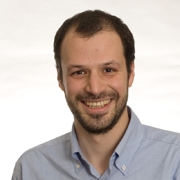Dr Andreas Pantazatos
Epistemic Injustice and Heritage after War: Displaced People and their Ruins
Abstract
In this paper, I will sketch a framework for the relationship between epistemic injustice and identity formation. I start my argument from the premise that heritage is related to knowledge, broadly construed. There is a kind of injustice, namely epistemic injustice, which occurs when people are excluded as informants from the economy of knowledge because they are wrongly judged to be unreliable source of information or their testimonies not deemed credible. I focus on migrants who are war refugees arguing that they can suffer from epistemic injustice because they are not provided with the space and/or are not encouraged to make contributions about their own heritage and its possible associations with the heritage of the host country. They are excluded and thus marginalised in virtue of their status as migrants. Epistemic injustice can undermine the new identity formation which is central for the establishment and the well-being of migrants in their new country. I propose that heritage institutions in charge of heritage reconstruction after war/civil conflict should take on board the testimonies and voices of those who claim that part of the reconstructed heritage and its significance is the destruction of monuments, and the displacement of communities who used to live close to those monuments.
Biography
Andreas Pantazatos is Assistant Professor in the Philosophy Department, Parliamentary Academic Fellow, and University College Research Fellow at Durham University, UK. He is also Research Associate at the Collaborative for Cultural Heritage Management and Policy at the Department of Anthropology of the University of Illinois at Urbana-Champaign, USA. His interests are ethics and politics of cultural heritage, ethics of stewardship and trusteeship, epistemic injustice and museums, ethics of identity and politics of the past (including post-war heritage reconstruction) and ethics of heritage and immigration. He is the co-editor of the volume Cultural Heritage, Ethics and Contemporary Migrations. London and New York: Routledge, 2018.




